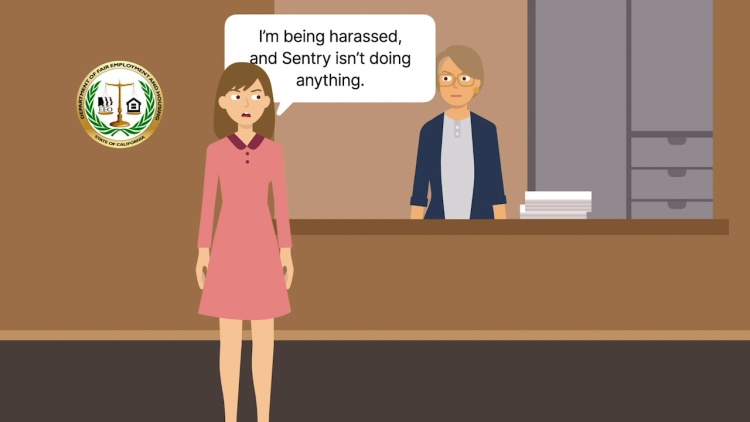Gantt v. Sentry Insurance
California Supreme Court
1 Cal. 4th 1083, 824 P.2d 680 (1992)

- Written by Sara Rhee, JD
Facts
In September 1979, Vincent Gantt (plaintiff) was hired as a sales manager for the Sacramento office of Sentry Insurance (Sentry) (defendant). In 1980, Joyce Bruno was hired to work in Sentry’s Sacramento and Walnut offices. Bruno reported to both Gantt and Gary Desser, the manager of the Walnut office. Soon after she began working, Bruno informed Gantt that Desser was sexually harassing her. Gantt reported the harassment to Sentry headquarters, but no action was taken. After Gantt made a second report of the harassment, Sentry demoted Desser and eventually fired Bruno. Bruno filed a complaint against Sentry with the Department of Fair Employment and Housing (DFEH). Sentry’s in-house counsel, Caroline Fribance, began investigating Bruno’s complaint and discussed the matter with Gantt. Although Gantt felt that Fribance was pressuring him not to disclose to the DFEH that he had reported the harassment to Sentry headquarters, Gantt nevertheless disclosed the truth to the DFEH investigator. Approximately two months later, Sentry demoted Gantt to a sales-representative position. Sentry also refused to give Gantt a book of accounts, which severely limited his ability to perform his job. Gantt resigned and sued Sentry, alleging that Sentry had constructively discharged him in retaliation for his refusal to withhold truthful testimony from the DFEH investigator, which was in violation of public policy. The trial court found that Gantt’s discharge violated public policy. The court of appeal affirmed. Sentry appealed.
Rule of Law
Issue
Holding and Reasoning (Arabian, J.)
What to do next…
Here's why 911,000 law students have relied on our case briefs:
- Written by law professors and practitioners, not other law students. 47,100 briefs, keyed to 997 casebooks. Top-notch customer support.
- The right amount of information, includes the facts, issues, rule of law, holding and reasoning, and any concurrences and dissents.
- Access in your classes, works on your mobile and tablet. Massive library of related video lessons and high quality multiple-choice questions.
- Easy to use, uniform format for every case brief. Written in plain English, not in legalese. Our briefs summarize and simplify; they don’t just repeat the court’s language.





